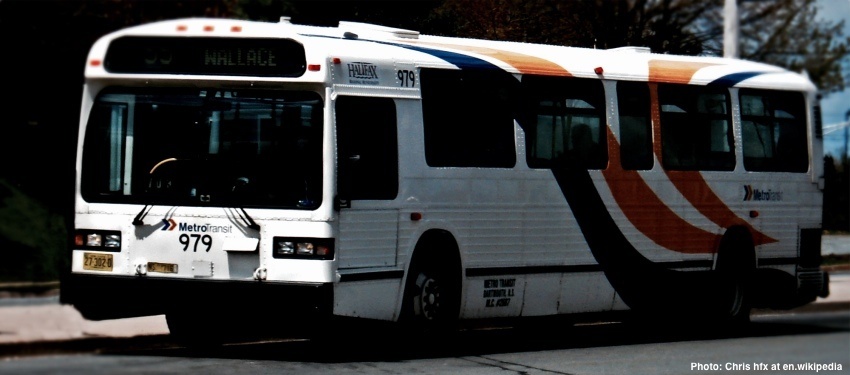
Dear Mr. Savage: Heed Our Call For Relevant Public Transit.
September 9, 2013Skip this preamble: TL;DR
Over the weekend, I came across this tweet from our city's mayor, Mike Savage:
We're looking for your input: What should the goals of Metro Transit be for the next five years? http://t.co/FgAO3qepKF
— Office of the Mayor (@MikeSavageHRM) September 5, 2013
As a recovering Metro Transit rider, I had to chime in:
@gregpoirier @MikeSavageHRM @chrismarriott I'd like to see some route optimization based on feedback from citizens. Real data analytics.
— Ari Najarian (@stickbyatlas) September 8, 2013
@gregpoirier @MikeSavageHRM @chrismarriott To grow ridership, we should solicit feedback from non-riders on routes/schedules they want.
— Ari Najarian (@stickbyatlas) September 8, 2013
My response got me thinking, and I revisited the question that Mr. Savage and Metro Transit are both asking us. What a simple question. What an obvious question.
Metro Transit's goal -- Metro Transit's ONLY goal -- should be to increase its ridership. It's the most important metric, economically, environmentally, logistically, and socially. If we can increase the ridership of Metro Transit, its revenue goes up, pollution goes down, traffic becomes less congested, and we will have proved that we view public transit differently in this city.
Ridership requires Relevance.
Disagree with me if you like, but I can't imagine a scenario where more citizens using public transit isn't a fundamentally good thing. So, how do we get there? How do we convince citizens of HRM to leave their cars at home and take the bus or ferry instead? Again, this seems to me a simple, obvious question. Make Metro Transit relevant. Give us routes designed around how, where and when we commute. Make more of us feel like part of your demographic. Because right now, most of us don't. We can't get to our destination without scrutinizing a transit map; the schedule is too infrequent; the ride takes too long; service is erratic; GoTime lies; and on and on.
...But Relevance requires Research
People use products and services that fit their lifestyle. This is why advertisers spend billions trying to learn about their demographics. We already know about the usage habits of current riders - the shoe already fits them, and they're wearing it. What Metro Transit needs to learn more about are the people who would use public transit, "if it wasn't for [insert legitimate reason here]". Believe me, there are plenty of us.
You asked for my input:
Metro Transit needs to make itself more relevant to more people. To do this, it needs to collect information about the people who currently aren't taking public transit. So, I'm going lay out exactly how I would collect this information for Metro Transit. Tactics, strategy, deliverables, you name it.
The first thing I would build is a simple web application that anybody with an internet connection could access. To use it, you would register with just your email address. No password necessary. We'd send you an email with a personalized link (a hash value) - use that link to access the app, and you're golden.
Once you're in, you can start telling the system about your transit needs. You do this in simple English, in a simplistic, streamlined flow. We geocode origins and destinations behind the scenes, to conform to a useful spec.
Here's some ideas I would propose for a spec that provides meaningful data analytics. Each visitor enters:
- Address of their current residence
- Trebles consisting of: origins, destinations and departure times
- Public destinations they want better access to (array, ranked)
All origins and destinations would preserve original addresses, but also contain latitude/longitude pairs so we could perform geospatial queries. Associating all entries with an email address allows us to flag abusers. Naturally, all data is anonymized before we start working with it. The end result is a RESTful API that serves JSON data - open standards that any developer can work with.
And guess what? Metro Transit now has a way to communicate with prospective riders. If you make big, bold changes based on this data, you can email everybody who submitted feedback (provided they didn't opt out, of course). You could even contact specific subgroups, e.g. just Bedfordites, or Sackvillians, or people who ranked Halifax Shopping Center as a top destination.
Based on the general information collected from the above spec, Metro Transit can now answer questions like:
- Where do the people who might potentially ride the bus currently live?
- Around what time of day do these people need to depart from [x] location?
- With these people riding, which locations would be busiest? At what times?
- To which public destinations should we increase frequency of service?
- How many people would actually use [x] existing bus stop in a day?
- Which bus stops are redundant, and which areas will need more of them?
- Given a schedule, how many passengers would be waiting for more than [x] minutes for a bus to arrive?
This data also allows Metro Transit to create visualizations such as:
- Time-based heat maps of where people want to depart from.
- Given a time of day, where everyone is trying to go at that moment.
- Given a time of day, where everyone is waiting for a pickup.
- How far new riders would need to walk to get to an existing bus stop.
How many of these questions do you think Metro Transit can currently answer? My guess is: not many. The data doesn't exist, because nobody has ever asked non-riders how they would use public transit. And that's because...
There's no glory in it.
What I've outlined above is a system that would facilitate the collection of meaningful data from citizens of HRM, indicating their preferred destinations, points of origin, and boarding times. The end result is a huge, anonymized, open datastore that could help Metro Transit planners make meaningful decisions about routes and schedules. It ain't glamorous, and it certainly isn't consumer-facing. And so, most developers looking to win consumer mindshare probably won't build it, say, at a civic hackathon.
...But it needs to be done.
Without this data, it's next to impossible to plan strategic, relevant routes. Without routes that are actually relevant to the largest number of citizens in HRM, Metro Transit can't hope to meaningfully grow its ridership. Without an increased ridership, we can expect higher fares, more route cancellations, and eventually, another transit strike. Nobody wants that.
Your heart is in the right place.
It's great to see Metro Transit reaching out to HRM residents in advance of releasing their next Five Year Plan. I also appreciate that Halifax is trying to reach out to its local developer talent to solve some of the city's problems with its Open Data initiative. It's nice to see Halifax encouraging "civic hacking" like other cities across North America. You're willing to listen to us, and you're willing to be forward-thinking and innovative in how you solve problems.
...But your actions are misguided.
Soliciting app ideas by average citizens isn't the greatest way to find solutions to transit problems. Two reasons for this:
- average citizens (lacking degrees in urban planning or civil engineering) tend to talk about window dressing, not deep issues (prove me wrong), and
- the market is too small for a polished app to recover its development costs by selling to end users. There's a reason Mindsea switched to an ad-supported model for Transit360.
You've also created a survey that asks citizens to help you decide how to prioritize transit improvement and service expansion. Our answers will help you justify the decisions you make down the road. But without real data from prospective riders, how can these decisions build a relevant public transit system?
Listen to the right people.
There are a lot of brilliant developers in this city. Many of them are much, much smarter than me. But we all have something in common: we can build systems that connect people to information, and we can give that information a voice.
So here's the deal: if I've convinced you of the value of data analytics in transit planning, Torusoft will build the web app, and the API to interact with the data. Consider this both a pitch and a pledge, for your consideration. We await your reply.
Not Mayor Savage or a Metro Transit official? Get in touch anyway, and tell us what you think. If you're a developer, how would you use this API? If you're a resident, how would you help shape the future of public transit in Halifax?
Other posts by Ari Najarian
- The Road to Mental Readiness mobile app has officially been released.
- Why coding? Why now?
- Proposal: The Nova Scotia Digital Bridge Scholarship
- Day 5: Server-side programming and future directions
- Day 4: Object-oriented programming and MVC
- Day 3: Databases and REST APIs
- Day 2: Front-end development and interface design
- Day 1: The hard questions.
- Podcamp session idea : offline-first development
- Don't Just Harvest. Cultivate.
- Dear Mr. Savage: Heed Our Call For Relevant Public Transit.
